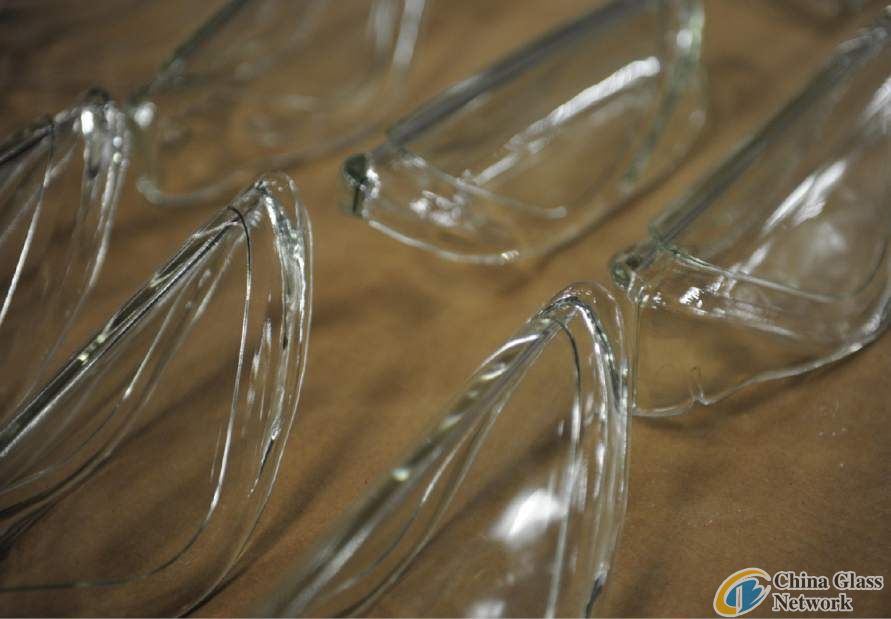A Penn Township industrial glass manufacturer has continued to grow over the past decade, even as many of the region's once-plentiful glass companies closed up shop in the face of foreign competition.
Chromaglass Inc. last month started production in a new plant, doubling the floor space of its previous facility in Delmont. The 12-employee company may be small, but it's managed to hang on because its specialty products aren't easily copied by machines in overseas factories, President Bruce Stephens said.
"I think we're cautiously confident, would be the way I'd put it," Stephens said.

But challenges are on the horizon.
"We think we can grow, but it's not a 100 percent guaranteed thing," he said. "The lighting industry is changing radically."
Stephens and two colleagues from Kopp Glass Inc., David Dutt and Bruce McNally, began Chromaglass in 2001 and faced more than the average difficulties of a new company. The founders' plans were to enter a niche within the glass industry, producing covers and housings for the aerospace industry.
Two months after the business opened, terrorists flew airliners into New York City's World Trade Center towers and the Pentagon. Stephens said airplane production came to a halt.
"How do you write that into a business plan?" Stephens said. "We closed the whole place down" for about a month and a half in a scramble to find new customers. McNally has since retired; Dutt is Chromaglass' vice president.
Asked how Chromaglass managed to stay afloat, Stephens replied: "With a wing and a prayer. We found some other business that wasn't aerospace, and we limped along until the aerospace industry started to pick back up."
Some of the other business Chromaglass found was producing covers for outdoor architectural lighting. That work continues, along with making filters for medical lighting. But the bulk of the company's work is in aerospace, which began its revival about 2003, Stephens said.
Chromaglass makes glass covers for wing lights on a range of aircraft, from large commercial airliners by Boeing and Airbus to smaller jets. It also makes housings for runway and tower lights. Orders are small — in the 100-piece range — and filled by skilled craftsmen, some of whom can spend up to five years learning the craft of molding industrial-strength glass.
"We've been seeing steady growth," Stephens said. "It is coming primarily from the aerospace industry."
Stephens declined to provide sales figures or growth rates for privately held Chromaglass, citing fierce competition in the industry.
Competition may remain, but there aren't as many companies in Western Pennsylvania's once strong glass industry.
PPG Industries Inc. is well-known, but a majority of its sales come from paint, not glass.
Kopp Glass produces industrial glass products in Swissvale. L.E. Smith Glass Co. continues to manufacture consumer glassware in Westmoreland County.
But the number of factories here has dwindled to about 20, down from more than 100 in the early 1900s. By 2002, 11,053 people manufactured glass in Pennsylvania — down from 23,710 in 1909.
Stephens remains cautiously optimistic about Chromaglass' future because the company has been tested and survived its early years, and because demand from aircraft manufacturers is growing.
But new technology has him worried — specifically, Light Emitting Diodes, or LEDs.
LEDs don't generate the high amounts of heat that incandescent lights do, meaning heat-resistant glass isn't always needed as a covering. LEDs can be arranged in arrays to direct light in various ways, eliminating the need for specially formed glass covers. And LEDs are made in a multitude of colors, reducing demand for colored glass.
"There's a lot of tech changing in the lighting industry," Stephens said. "I don't know how it's all going to shake out."
But so far, plastic can't match the strength and durability of glass on aircraft and in outdoor settings, such as building exteriors and airfields, he said.
"That's why I'm cautiously optimistic."





